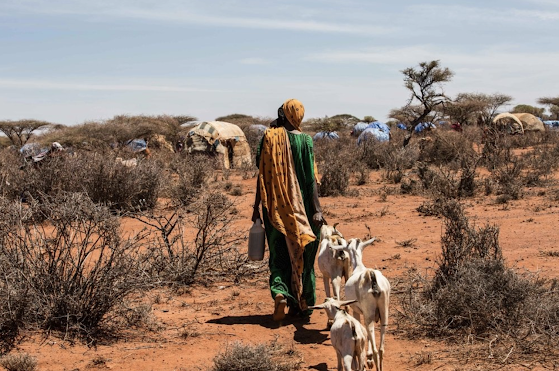Welcome to Water and Climate Change in Africa
Hello and welcome to Water and Climate Change in Africa!
My name is Neema and I am a final year undergraduate geography student at UCL. In this blogging series I will be looking at the effects of climate change on water resources, and its impacts on human development in Africa (Figure 1).
Figure 1. An example of the impacts of climate change in Africa showing the damage to infrastructure caused by Cylone Idai (2019) in the coastal city of Beira, Mozambique. Cyclone Idai was a highly destructive storm thought to be caused by the intensification of precipitation events due to global warming (Council on Foreign Relations 2019) (Photo credit: Financial Times, 2019).
The focus for this blog has been inspired by my keen interest in anthropogenic climate change and the ways it is expected to disrupt the interactions between people and their environment. I will refer to climate change as the rapid rise in mean global temperature as a result of anthropogenic greenhouse gas emissions since the middle of the last century (Figure 2) (BBC News 2020) Climate change is important because it can have many adverse effects on the functioning of human societies, particularly through the disruption of social and cultural resources that we derive from our environment (State of the Planet 2019).
Figure 2. Changes in the mean annual land surface temperature compared to the average. The average is calculated based on mean land surface temperature data from 1951-1980 (BBC News 2020).
The effects of climate change are likely to be widespread with the most severe impacts expected towards the end of this century (Collier et al. 2008). However, some continents like Africa are more vulnerable to earlier impacts of global warming due to a greater exposure to climatic risks as well as a low adaptive capacity (Niang et al. 2014). Hence, through this blogging series I hope to bring greater awareness to the imminent threat of climate change on African communities as well as the range of challenges it brings to the development of society.
One of the most concerning effects of global warming will be the changes in the hydrological variability of water resources across Africa (Faramarzi et al. 2013). Increased heating from climate change will likely result in higher land surface temperatures which can lead to surfaces drying out, causing longer periods of drought (Africa Renewal 2019). Additionally, warmer temperatures can lead to greater relative increases in the moisture-holding capacity of the air which can cause more frequent and intense precipitation events (Trenberth 2011). This can lead to spatial and temporal shifts in the distribution of rainfall and is likely to affect river discharge and groundwater recharge, two of the major processes affecting water availability in Africa (Carter and Parker 2009; de Wit and Stankiewicz 2006).
However, as Africa is such a large landmass with varying geology, topography and climatic influences, there are likely to be large variations in the hydro-climatic effects across the continent (Collier et al. 2008). For example, climate change is generally expected to cause the subtropical regions in the north and south of Africa to become hotter and drier, whereas the south-east of Africa is likely to experience an increase in surface runoff from wetter conditions (Figure 3) (Niang et al. 2014). This could influence the availability of surface and groundwater resources across Africa as well as increasing water stress in some regions (Niang et al. 2014).
There are however many uncertainties around the impacts of anthropogenic climate change on water resources in Africa. This includes the uncertainties inherent in climate modelling as well as the interactions with socio-economic pressures that are also likely to influence water stress (Carter and Parker 2009; Thompson et al. 2015). Therefore, through this blogging series I hope to provide a more holistic understanding of the impacts of climate change on water resources in Africa and how this could influence the development in a continent which is often described as water scarce.





I like how you have used climate change as a way to focus on the link between water and environmental change. As your blog is entitled 'Water and Environmental Change', it may be worth enhancing what you have here by including a line or two at the start to that the reader can make the link between environmental change and climate change. Great use of visuals and synthesised resources (peer reviewed and other). Consider increasing the size of your text to enhance its readability.
ReplyDelete(GEOG0036 PGTA)